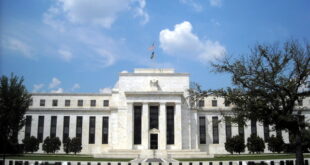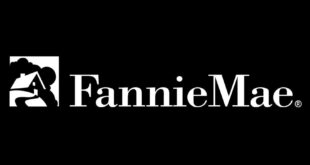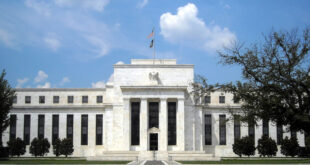The Fed meets every six to seven weeks to discuss monetary policy with regional representatives called Fed presidents. They gather with Fed chairwoman Janet Yellen to discuss and vote on whether to raise or lower rates, or keep them the same. On March 16, the Fed met and took a softer tone on raising rates this year. After a historic interest rate rise in December — the first in nine years — the Federal Reserve initially estimated that it would raise the federal fund rate four more times in 2016 because it thought that the economy would be strong enough …
Read More »Mortgage rates drop again!
This has been a challenging year so far for the financial world. With stock indices down close to 20 percent and with oil dropping to its lowest level since 2003, mortgage rates have remained unexpectedly low. The economy reported a weak 4th quarter reading for GDP (Gross Domestic Product) and the February jobs report showed that job creation was below the pace of previous months. With world economies still showing signs of weakness, the Fed, which has stated that they would like to raise rates four times this year, have begun scratching their heads. Fed Chairwoman Janet Yellen recently …
Read More »The upside to a down stock market
2016 should prove to be a good environment for mortgage rates. With the Feds’ first interest increase behind us, mortgage rates really have not moved much. The stock market, which has had its worst start in years, is keeping rates low. Usually when stocks suffer rates benefit from that. It’s like an hourglass. When you turn it over, the sand moves from the top to the bottom. The same goes for investment money. It usually flows from stocks to bonds or from bonds to stocks. Weakness in the China market, lower oil prices and a stagnate economy in Europe also have kept …
Read More »The Fed finally did it!
The Federal Reserve finally pulled the trigger on raising a key short-term rate that will inevitably lead to increases in the rates for credit cards, car loans and home equities. This marked the first time in nine years that the Fed has raised rates and marks the end to near-zero lending rates to banks. What does this mean? Consumers will pay a little more on their loans and savers will earn a little bit more from the money that they have in the bank. The Fed is hoping to raise rates two more times in 2016, but said that …
Read More »Fannie Mae looking to take on more risk
Back in 2008, the government-sponsored company known as Fannie Mae was taken over by the government because it was suffering so many losses as a result of being too easy on loan requirements and approval. Fannie Mae issues mortgage bonds to investors at a certain rate of return and then uses the money that it receives from the bond issuance to buy mortgages from companies at higher rates of return and keeps the difference as profits. Fannie Mae and it smaller sister company, Freddie Mac, own more than half of the $10 trillion residential mortgage market. Fannie Mae and …
Read More »The trouble with TRID
Starting on Oct. 3, the Consumer Financial Protection Bureau is implementing new Tila-Respa Integrated Disclosure requirements, known in the industry as TRID. “So what’s a TRID?” you may ask. It represents the integration and rescheduling of an assortment of current mortgage documents in an effort to make things easier for consumers to understand while giving them an earlier account of what funds will be needed at closing. TRID requires that a “loan estimate” (terms, rates, costs, and payments disclosure) be sent directly from the lender’s or broker’s disclosure department to the costumer within three business days of the application …
Read More »Mortgage rates are on the rise
From roughly mid-spring to now mid-summer, mortgage rates have moved up approximately half a point, which is a big move in the mortgage industry. Recent job gains in June have exceeded analyst expectations, raising expectations that the Federal Reserve will follow suit with a rate increase. It is now expected that the Fed will begin to raise short-term rates for the first time in approximately eight years in September 2015. The expectation has a lot of people wanting to purchase this year to lock in that low rate for the next 15 to 30 years. I have also has quite …
Read More »When will the Fed pull the trigger?
It is not clear when the Federal Reserve will pull the trigger and raise shorter-term rates. It has been quite some time since the Fed has had to do this. The last time they raised rates was in 2007. Let me be clear, what the Fed raises is not mortgage rates, but rather a short-term rate that is call the Fed Funds Rate. This is the rate that banks charge to borrow money from each other. If the Fed raises this rate, then banks will usually increase their rates to consumers or business that borrower to them. This will …
Read More »Is the mortgage market just right?
Remember the childhood story of Goldilocks and the Three Bears, where this bed is too big and this bed is too small but this bed is just right? Can the market be at a point where everything is just right? Mortgage rates as of the day I am writing this article are below 4 percent for a 30-year fixed. Real estate prices are moving up and oil and gas prices are at multi-year lows. And while the economy isn’t speeding along, we have seen unemployment come down without being accompanied by wage inflation. Inflation overall has been below the …
Read More »A bonus for FHA borrowers
In early January, President Obama announced that he would lower FHA mortgage insurance premiums to help lower the mortgage payments of future FHA borrowers who are planning on purchasing or refinancing. On Jan. 26, those lower mortgage insurance premiums went into effect. Most lenders require 20 percent down on the purchase of a house, but the Federal Housing Authority allows borrowers to buy a home with as little as 3.5 percent down. FHA mortgage insurance covers the lender for the difference in case the borrower defaults. How much did President Obama save borrowers by lowering the premium? For every $100,000 …
Read More » Fra Noi Embrace Your Inner Italian
Fra Noi Embrace Your Inner Italian



